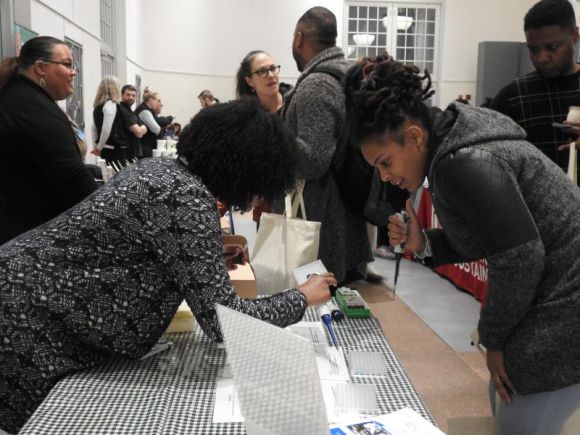It’s all about action. In the past few months, the ABE Equity, Access, and Engagement working group has been moving forward with systemic strategies to dismantle structural racism within and surrounding the ABE program. The working group has identified four key challenges to focus on immediately, with significant steps already underway within each area.
We are not reaching teachers in schools serving high percentages of Black students to increase their understanding, value, desire, and ability to teach ABE.
The Program Office is in the process of creating a strategic plan to be enacted beginning in December 2020 to specifically address outreach and support for teachers and students who identify as Black, Indigenous, or people of color (BIPOC). Current strategies include:
- Creation of a new ABE distribution center in the Greater Los Angeles area intended to address geographical and programmatic inequities (We are pleased to announce the new distribution center at Los Angeles Trade-Technical College in South Los Angeles!)
- Prioritized recruitment of BIPOC teachers for the ABE Master Teacher Fellowship program
- Establishment of professional mentorships for BIPOC ABE teachers through the ABE Volunteer Program, including integration of recommendations and priorities of Amgen’s Black Employee Network (ABEN)
- Development of an ABE Ambassador model focusing on engagement of family, community, and regional BIPOC-focused science partners serving the local community
We are not recruiting enough Black leaders and partners to lead and staff ABE program sites.
Using a Consultancy Protocol to surface some of the key challenges in partnering with Black-led science partners and organizations at new sites, the working group identified key processes for the Program Office to target and revise, including current research and outreach practices in new ABE communities. One preliminary action is the creation of different structural models for program site teams to ensure BIPOC representation, leadership, advisement, and advocacy.
We do not have Black representation and leadership at the ABE Program Office.
The working group is coordinating with the ABE Program Office to create, support, and sustain innovative leadership pathways for new and existing program site staff, particularly BIPOC program site staff, to inform and shape the ABE program at the global level. The Program Office is reviewing existing staffing and hiring processes with specific attention to recruiting diverse leaders at the Program Office level; supporting and sustaining existing BIPOC program site staff through professional mentorships, affinity groups, and surfacing of “pain points” and unsupportive practices; and providing program-level opportunities for leadership and advancement for BIPOC program site staff and teachers.
Digital inequality creates limits on access to ABE for communities with high BIPOC representation.
Though digital inequity goes well beyond the scope of the ABE program, the working group identified some potential access gaps that could be reduced through program practices. Potential strategies may include establishment of digital support as a funded expectation for program sites; assistance to sites with grant-writing to procure digital equipment and devices for teachers and students; and review and revision of curriculum to ensure accessibility and culturally competent best practices for virtual instruction.
“Given the current attention to racism in the United States—as well as ongoing racism and xenophobia around the globe—it is critical for all of us to do what we can within our sphere of influence,” says ABE Program Office Director Rebecca Lewis. “My hope is that by focusing on how we can support Black youth in having high-quality STEM learning experiences and giving them the opportunities to see a STEM identity for themselves, we can be part of the solution. While systemic racism is a larger challenge than what one program can solve, addressing racism at every level is necessary to make change.”
